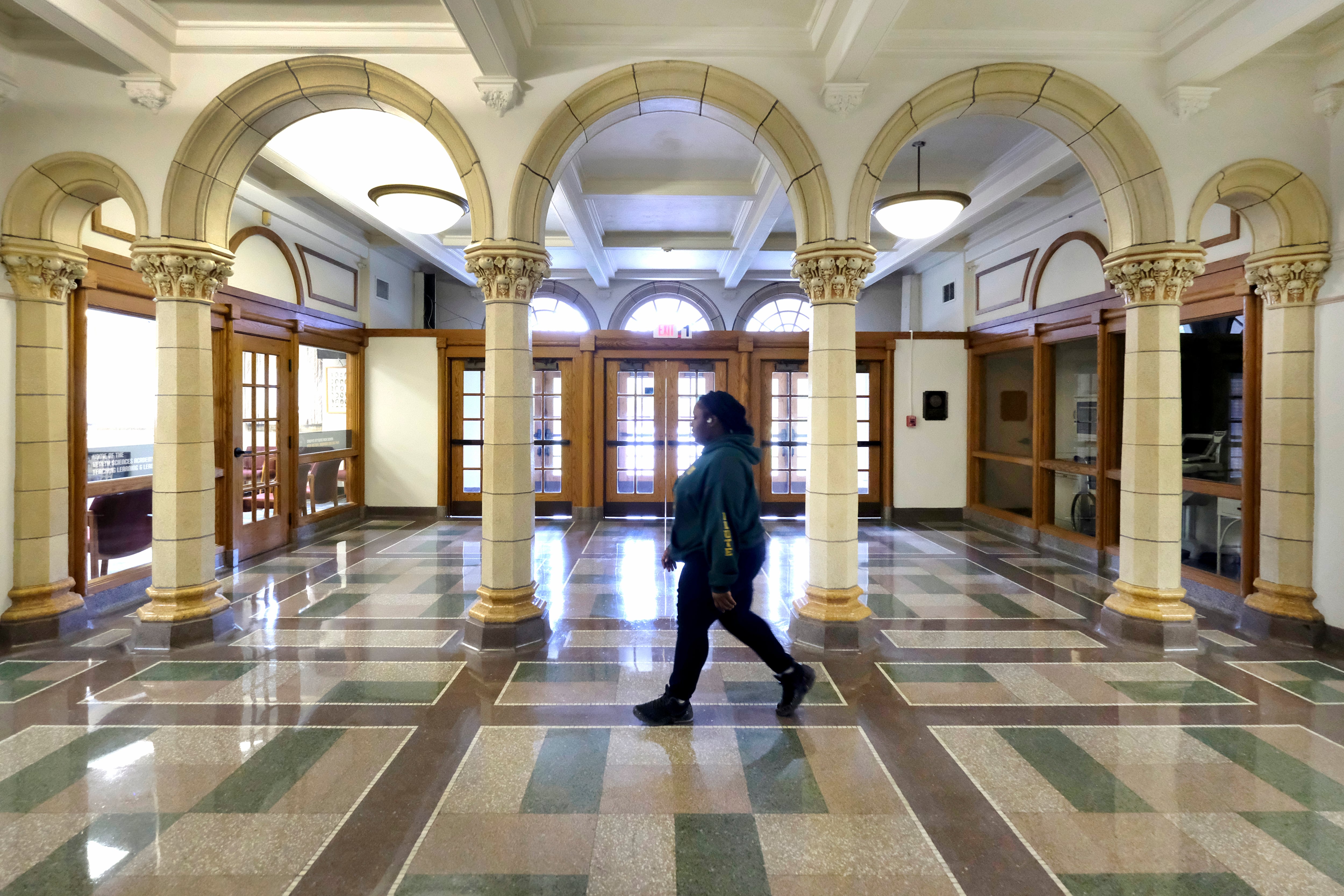Indianapolis Public Schools enrollment has dropped by 1,200 students, nearly 4%, from last fall. The decline means the financially strapped district will receive $15 million less in state funds than anticipated last spring, a critical loss when Indiana legislators are considering reducing funds for education statewide.
Officials expected to have 33,300 students this school year. But this fall, the district enrolled just 31,200 students.
Weston Young, the chief financial officer for the district, said housing and job shifts due to the COVID-19 recession may have caused the fall in enrollment.
IPS Superintendent Aleesia Johnson also suggested the pandemic may have caused enrollment to drop. While high school enrollment increased, elementary enrollment fell. Many parents may have kept their kindergartners home or sent their children to schools in other districts that had reopened their campuses earlier, she said.
IPS was one of the last two districts in Marion County to open in-person learning, in October. Johnson said of elementary grades, kindergarten enrollment was lowest.
“It’s not mandatory in Indiana,” Johnson said. “My hypothesis is that some families chose to just not opt into a formal kindergarten structure this year.”
While total district enrollment has decreased, the number of students at innovation schools managed by outside partners grew by 2,600 students.
Young tied that increase to the conversion of some campuses to charter-operated innovation schools. Those include low-performing schools that were overhauled with outside partners and schools that were released from state control this year.
The dip in enrollment is particularly problematic for IPS because its budget was already tight. After voters approved a property tax hike two years ago, the district got an influx of money that helped boost teacher pay. But when leaders asked for the tax increase, they also committed to reducing long-term expenses to make the budget sustainable. Many of those cuts are still on the horizon.
Indiana lawmakers are also considering cuts to school funding in the next state budget because of lower sales and income tax revenue during the pandemic.
District officials say they do not know yet if the $15 million shortfall will have a domino effect on staff layoffs and program cuts.
“The question we are wrestling with currently is where might we look to close those gaps,” Johnson said.
Additional federal stimulus dollars could help make up the lost dollars.
How the coronavirus spreads in the second semester will affect both spending and revenue. Whether lawmakers decide to fully fund schools operating virtually also will affect the district’s bottom line, she said.
A federal bailout could help. Last school year, IPS received $23.8 million from the CARES Act Allocation and Governor’s Competitive Grant. The district used federal funds for facilities, transportation, food services, special education, and English language learners.
This school year district officials expect to spend $26.5 million to respond to COVID-19 needs.





